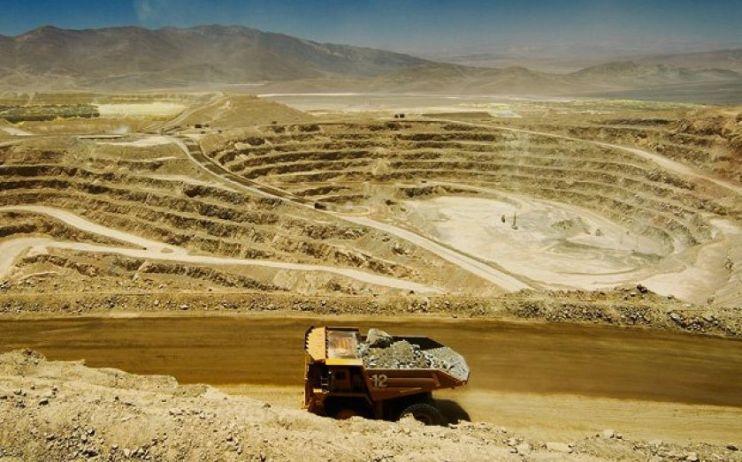Got the minerals? How Glencore’s failed takeover reflects urgency of green push

Glencore’s failed takeover bid for Canadian miner Teck Resources reflects the growing urgency from miners to demerge from fossil fuels and embrace future-facing minerals such as copper, experts have argued.
The commodity giant, if it had been successful, would have demerged the collective coal assets into a separate company listed in New York.
Meanwhile, the green minerals vehicle with Teck would be listed in London. This would consist of 60 per cent copper, 15 per cent zinc, five per cent nickel and the remaining 20 per cent in marketing.
Investment analysts Jefferies considered there to be “a compelling strategic rationale for this combination” and expected a return offer from Glencore with a higher valuation – although it was unclear this would be enough to convince Teck shareholders to change their mind.
“It is possible that Teck’s controlling Class A shareholders believe that Teck continues to be very deeply undervalued even based on the premium offered by Glencore,” Jefferies said.
Last month, Glencore approached Teck with an offer that valued Teck at £17bn, representing a 20 per cent premium on both its share classes at the time.
Under the proposal, Glencore shareholders would own 76 per cent of the combined entity whereas Teck shareholders would own 24 per cent.
The deal would include a merge of the two companies and then a spin-off with the combined coal assets alongside Glencore’s ferro-alloys business and coal trading business into a new listed company (“CoalCo”).
However, Teck is proposing its own spin-off – dividing its coal assets from its metals businesses, with two separately listed company.
It regarded Glencore’s proposals as “opportunistic” and has briefed the media that the board is “not contemplating a sale of the company at this time”.
Instead, it considers its own plans to be “a much more compelling transaction.”
Glencore in a rush to move on from fossil fuels
Glencore posted pre-tax profits of £28bn last year and handed almost £6bn to shareholders amid widespread volatility in the economy and soaring commodity prices.
By contrast, Teck made £3.92bn earnings over the same period, with shareholders clawing back £3.28bn.
Despite the size disparity, Teck sees potential challenges with a merger, such as the scale of Glencore’s large thermal coal business and oil trading businesses.
It was also concerned with the geopolitical risk from Glencore’s operations in DRC and Kazakhstan.
Boris Ivanov, founder of commodity specialist Emiral Resources, told City A.M. the bid highlights the growing demand for new minerals to boost renewable projects, EVs and electrification.
“Glencore’s £17bn bid for Teck is indicative of the demand for key metals such as copper, lithium, cobalt, and nickel to power the energy transition. Glencore warned at the end of last year that a huge shortage of copper is looming and a potential supply crunch could slow decarbonisation efforts,” he said.
The commodity expert noted that Glencore’s bumper earnings were chiefly powered by record coal prices, making Teck “an attractive acquisition target for Glencore as mining giants shift their portfolios to focus on future facing commodities.”
He concluded: “With the high demand for critical metals and minerals to power the green energy boom and expected supply crunches, we are likely to see a new wave of consolidation and appetite for large M&A in the mining industry.”
This sentiment was reaffirmed in the latest research from Saxo Bank, which noted the copper had not just rebounded this year amid increased demand from China, but had been more resilient to instability that rocked oil markets.
Ole Hansen, head of commodity strategy, noted that when crude oil dropped by more than 12 per cent last month, the loss in copper was less than four per cent.
He said: “It highlights a metal where rising demand from electrical vehicles, renewable power generation and energy storage and transmission is already offsetting the property slowdown in China – in recent years, a key source for demand – and an economic slowdown in the West.
“If, as we believe, this pickup in green demand has only just begun, the prospect for an increasingly tight copper market in the years to come will be the driver that eventually sees prices hit fresh record highs.”